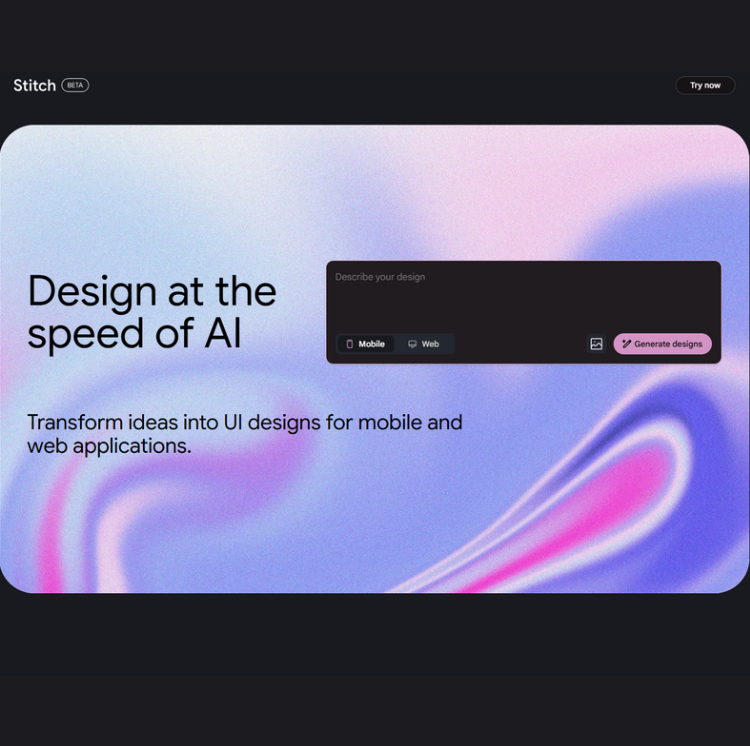Meet AlphaEvolve: Google’s AI agent that isn’t just coding - it’s inventing.
Forget prompt engineering and one-off scripts. AlphaEvolve evolves entire codebases and creates new algorithms, all while most of us are still stuck debugging typos.
📣 What Google Is Saying
Google DeepMind claims AlphaEvolve is powered by a blend of its fastest and deepest AI models, Gemini Flash and Gemini Pro. Together, these models generate, test, and improve computer programs, keeping only the best and most efficient ones.
AlphaEvolve isn’t just generating code snippets. It’s optimizing Google’s vast digital infrastructure-everything from scheduling billions of data center tasks to helping design the next generation of AI chips.
source: deepmind.google
💬 In Human Words
Imagine if your code could rewrite and improve itself while you sleep-and then explain what it did in plain English. That’s AlphaEvolve.
-
In Google’s data centers, AlphaEvolve found a new way to juggle workloads, squeezing out an extra 0.7% of compute resources worldwide (that’s like finding a hidden server farm).
-
In chip design, it rewrote part of a TPU’s brain, making it faster-without breaking anything.
-
For AI training, it made matrix math faster, so Gemini learns in less time and burns less energy.
-
In math, it invents brand-new algorithms for problems humans have been stuck on for decades.
It’s not “AI as assistant.” It’s AI as collaborator. AlphaEvolve proposes, tests, and verifies code automatically-often discovering things Google’s own engineers might miss.
🧪 What You Should Really Focus On: Evolution, Not Just Automation
Let’s be clear: this is not another AI code generator (see OpenAI's Codex for example).
AlphaEvolve runs a true “survival of the fittest” for software. It creates dozens (or thousands) of solutions, tests them, and lets the best ones shape the next round. The more it runs, the better the algorithms get-sometimes in ways nobody expected.
Why does that matter? Because for once, the impact is visible:
-
Faster servers.
-
Smarter chips.
-
More efficient AI models.
-
New math that powers the next wave of tech.
This isn’t the AI of the future-it’s quietly running Google’s world right now.
📝 Feature Breakdown: Codex vs. AlphaEvolve
| Feature | OpenAI Codex | AlphaEvolve |
|---|---|---|
| Writes code | ✅ Yes | ✅ Yes |
| Evolves & optimizes codebases | ❌ No (single snippets) | ✅ Yes (entire codebases) |
| Finds new math algorithms | ❌ No | ✅ Yes |
| Human-readable, explainable output | ✅ Usually clear | ✅ Built-in, production-ready |
| Deployed at large (Google-scale) | ❌ No | ✅ Yes |
| Collaborates with human engineers | ❌ Not directly | ✅ Yes |
| Automated code testing | ⚠️ Minimal | ✅ Full pipeline |
| Impact on infrastructure | ❌ Limited | ✅ Production (data centers, chips) |
| Supports novel algorithm discovery | ❌ No | ✅ Yes |
🔚 Bottom Line
Cost: Not for sale (this one’s internal-for now)
Availability: Already running behind the scenes across Google
If you’re wondering why Google’s services feel faster and more efficient, there’s a good chance AlphaEvolve had something to do with it.
🧊 Frozen Light Team Perspective
The real story isn’t “AI writes code.” That’s old news.
What matters is that AlphaEvolve evolves the way code, chips, and entire digital systems are created.
The code it invents is not just new-it’s tested, scored, and explained so humans can use it, too.
This is what AI collaboration looks like when you give it the keys to real problems, not just sample projects.
So, what does this mean for everyone else?
It means the future of engineering and science will be shaped not just by people, but by teams of people and evolving AIs.
It’s not about replacing engineers-it’s about giving them superpowers.
Your move, world.








